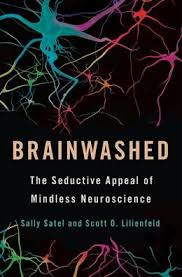 This September, a new two-part PBS broadcast hosted by Alan Alda is taking on an issue at the heart of CLBB’s mission: how brain science could improve the criminal justice system.
This September, a new two-part PBS broadcast hosted by Alan Alda is taking on an issue at the heart of CLBB’s mission: how brain science could improve the criminal justice system.
Speaking with experts including Gene Beresin of Harvard Medical School, Joshua Buckholtz of Harvard University and a CLBB faculty member, Jay Giedd of the National Institute of Mental Health, Joshua Greene of Harvard, Owen Jones of Vanderbilt University and Kent Kiehl of the University of New Mexico, Brains on Trial asks:
– Why is there a need to revamp the criminal justice system?
– What do we already know about neuroscience in the courtroom?
– What can future courtrooms expect from neuroscience?
The website for the production includes law and neuroscience resources as well as information about the numerous experts who contributed.
Brains on Trial will air September 11 and 18 on PBS. On September 17, the McGovern Institute for Brain Research at MIT will host an event with Alan Alda discussing the production and the issues.’
RSVP for the 9/17 event at MIT with Alan Alda, Steven Morse, Nancy Kanwisher, Josh Greene, and Bob Desimone.
Go to the official page for Brains on Trial.
Read more about Brains on Trial.


 Brainwashed: The Seductive Appeal of Mindless Neuroscience, a new book by psychiatrist Sally Satel and psychologist and professor Scott O. Lilienfeld, argues that current real-world applications of neuroscience may be misguided and even harmful.
Brainwashed: The Seductive Appeal of Mindless Neuroscience, a new book by psychiatrist Sally Satel and psychologist and professor Scott O. Lilienfeld, argues that current real-world applications of neuroscience may be misguided and even harmful.
